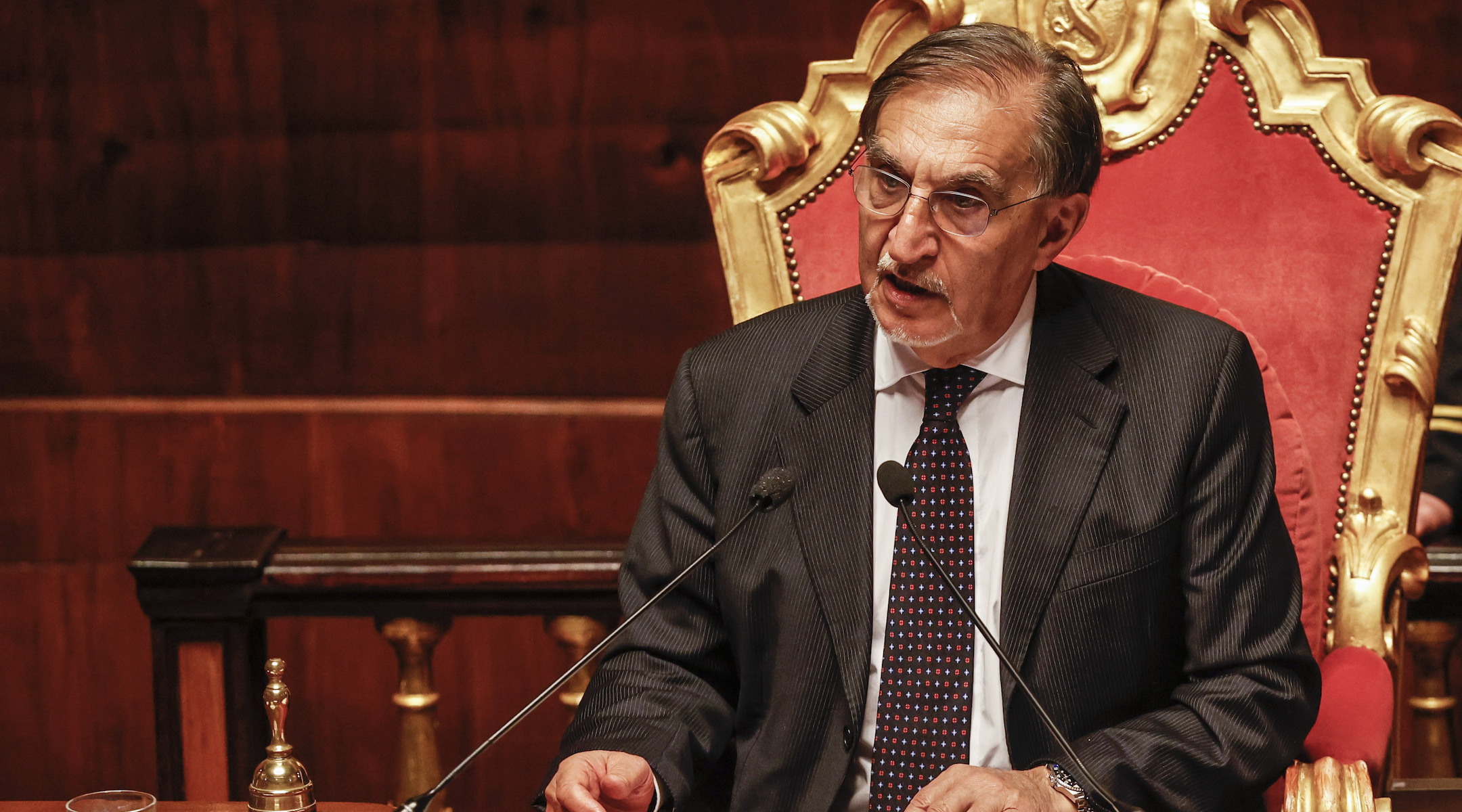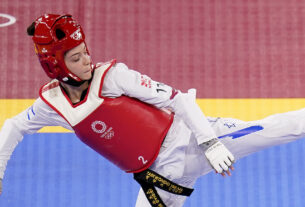(JTA) — Jewish leaders in Italy had strong words for the president of the country’s parliament after he published a post on Instagram honoring the history of the Italian Social Movement, or MSI, a neo-fascist party founded in the wake of World War II.
Ignazio la Russa, a senator from Cologno Monzese, a municipality in Milan, wrote alongside a picture of an MSI campaign poster: “In memory of my father, who was one of the founders of the Italian Social Movement in Sicily and who chose the path of free and democratic participation with the MSI throughout his life in defense of his ideas respectful of the Italian Constitution.”
Leaders within Italy’s Jewish community were dismayed by his decision to link MSI to the post-World War II Italian constitution. The ascendance of far-right leaders who have expressed nostalgia for the fascist period in Italy — which nearly spelled the near destruction of Italian Jewry — has Italy’s present-day Jewish community worried.
“Today we celebrate the 75th anniversary of the promulgation of the Republican Constitution, the affirmation of our anti-fascist democracy,” Noemi Di Segni, president of the Union of Italian Jewish Communities, said on Tuesday in an op-ed in La Repubblica. “Yet there are those who believe they are celebrating another anniversary, that of the foundation of the MSI, a party which, after the fall of the fascist regime, placed itself in ideological and political continuity with the RSI, the government of diehard fascists who actively collaborated for the deportation of Italian Jews.”
Ruth Dureghello, president of the Jewish Community of Rome, wrote a critical statement of her own.
“The Italian Republic is anti-fascist and when one swears on the Constitution, it should be done knowing that there can no longer be ambiguity or inconsistency in this matter,” she wrote. “The Social Movement claimed the experience of the RSI [Fascist Italy under Mussolini], while for Italians the only model to aspire to is that of the anti-fascist movements which with their sacrifice have freed Italy from the Nazi-fascist yoke.”
La Russa took office as Senate president in October, after the victory of a right-wing coalition gave his Brothers of Italy (FDI) party a plurality in the senate and made Giorgia Meloni prime minister.
Though La Russa founded FDI alongside Meloni in 2012, he spent much of his early career in politics as a part of MSI — which was co-founded by his father in 1946 — until its dissolution in 1995. For most of its history, MSI branded itself as the defender of Italy’s fascist history, even long after the death of dictator Benito Musolini.
FDI is seen by many as MSI’s successor in Italy, even incorporating the defunct party’s tri-color flame in its own logo.
‘With all due respect to his family affections, the honorable La Russa has not yet understood that he is the President of the Senate of the anti-fascist Republic and not the head of the youth organization of the MSI. His post is a disgrace to democratic institutions,” said Gianfranco Pagliarulo, national president of ANPI, an organization devoted to veterans of Italy’s anti-fascist resistance, according to La Pressa.
Meloni was also linked to the MSI in her early years in politics. Critics say she has emboldened fascist sympathizers, and last month photos of one of her appointed ministers wearing a Nazi armband over a decade ago sparked controversy.
“Faced with the prospect of a prime minister that is affiliated with a party that ideologically is the heir of the Italian Social Movement, a good part of Italian Jews are concerned,” David Fiorentini, president of Italy’s Jewish Youth group, told the Jewish Telegraphic Agency in September.
Nonetheless, Meloni has attempted to make overtures to the Jewish community. In November, she met with the World Jewish Congress as well as Italian Jewish Leaders, where she discussed antisemitism and, according to her office, gave a statement which “underlined the essential importance of Jewish communities for the Italian and European national identity.”
Like other far-right leaders in Europe, she has frequently pointed to her support of the state of Israel and compared herself and FDI to Benjamin Netanyahu’s Likud Party.




